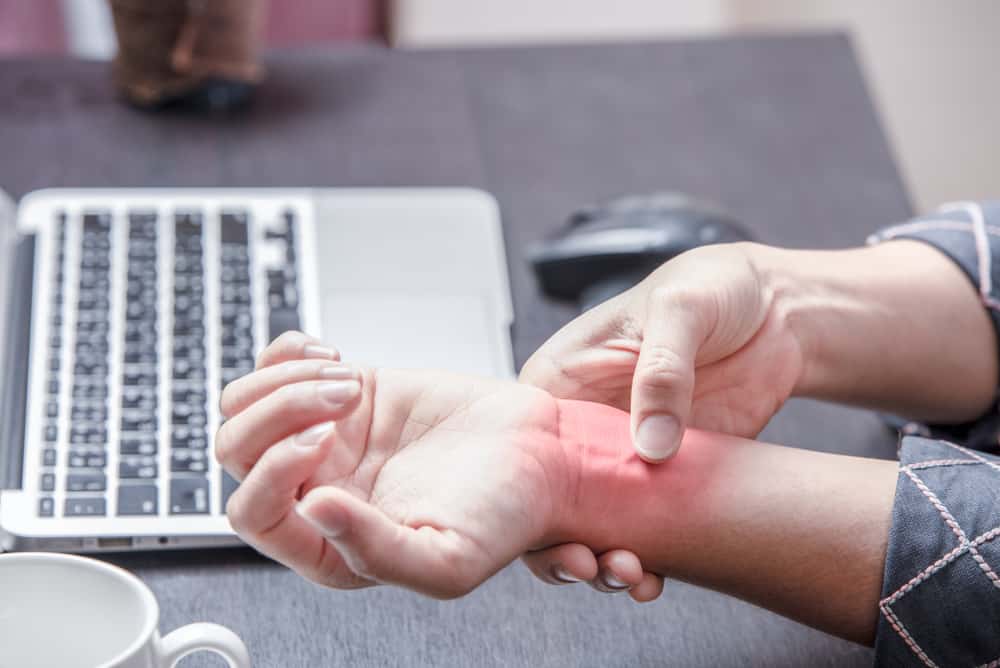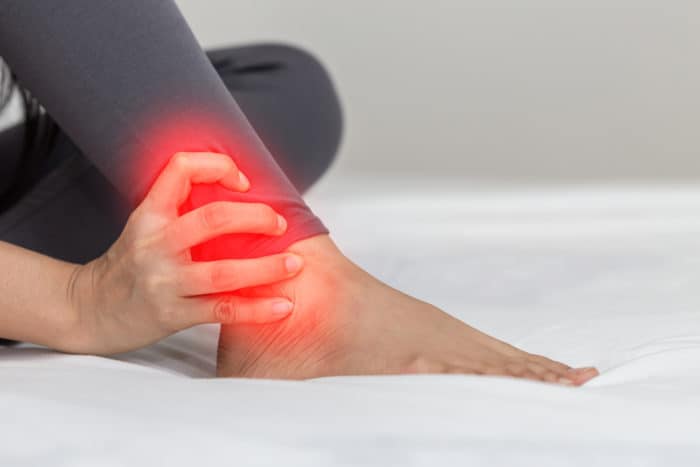Contents:
- Medical Video: Common Nerve Problems in the Elbow -- Cubital Tunnel Syndrome (Q&A)
- Symptoms of clamping nerves that you need to pay attention to
- 1. The pain is like being pierced by a sharp object or burning heat
- 2. Numbness or lack of sensitivity to certain areas of the body
- 3. Frequent tingling in the hands or feet
- 4. Muscles in certain areas of the body become weak
Medical Video: Common Nerve Problems in the Elbow -- Cubital Tunnel Syndrome (Q&A)
People who are obese, have just been injured, or who have arthritis in their hands are most susceptible to experiencing nerve clamps. People whose jobs involve repetitive limb movements, such as construction workers, factory workers, office workers, and runners are also at risk of experiencing this condition. Although quite common, do not underestimate the nerves that are clamped. If the nerve is continuously left pressed by the surrounding area (can be bone, cartilage, muscle, or tendon), over time your nerves can be permanently damaged. Besides pain, of course, the symptoms of nerve clamps should you be aware of?
Symptoms of clamping nerves that you need to pay attention to
Symptoms of nerve clamping experienced by someone can be different from other people. Similarly, the intensity of the severity. However, just letting the symptoms aggravate the condition to cause nerve damage.
So, you need to pay attention to some of the following symptoms of nerve clamping and immediately see a doctor to get the right treatment.
1. The pain is like being pierced by a sharp object or burning heat
Pain due to nerves clamping different from the pain when sprained or dislocated. When sprained or dislocated, the pain is blunt and only focuses on the swollen joint.
However, clamping nerves will usually cause discomfort at the end of the location of the inflamed nerve. For example, if a pinched nerve is a sciatic nerve in the lower back, then the pain will actually appear on the legs.
The pain is also not sore like an open wound, but a sharp, needle-like pain followed by a burning sensation.
2. Numbness or lack of sensitivity to certain areas of the body
Numbness or lack of sensitivity to certain areas of the body can be a sign of a pinched nerve. This condition is usually caused due to pressure in the blood flow in the nerves. Large pressure will inhibit blood flow, reduce oxygen levels in nerve cells so that the ability of the nerves to feel becomes disturbed.
3. Frequent tingling in the hands or feet
Tingling or paresthesias can indeed happen to anyone. This condition is a sign that the nerves will get a large pressure that blocks the flow of blood. Usually it will occur when your legs or arms are folded for a long time and will improve with you moving the tingling parts.
However, parasthesia only occurs if nerves are constantly under pressure. If it happens frequently, but it is not clear or doubtful what causes it, this can be a sign of nerve clamping.
4. Muscles in certain areas of the body become weak
Muscle weakness is a sign that one of your motor nerves is experiencing a lot of pressure and is pinched. This condition signals the body that the muscles connected to the nerves cannot work properly.
If this condition is accompanied by other symptoms such as coordination problems or breathing difficulties, it is likely to indicate another disease, such as a heart attack, stroke, or multiple sclerosis.
Fortunately, nerve symptoms only occur in a short time and will return to normal after the pressure on the nerve slowly decreases, for example by being compressed.
















